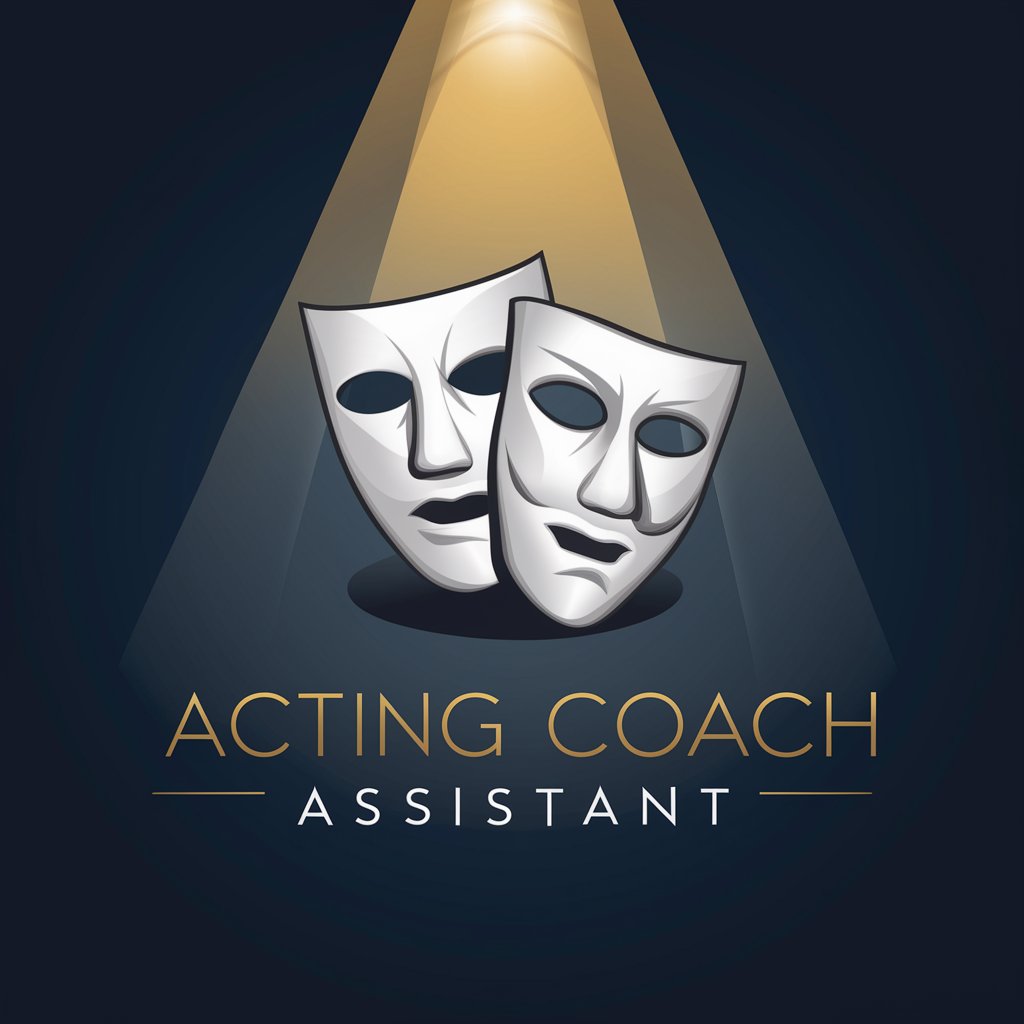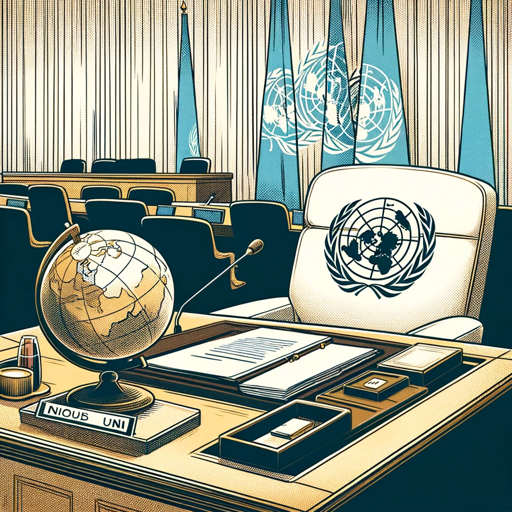TimelineGPT - alternate history timeline generator

I craft detailed, concrete alternate history timelines.
AI-powered tool for alternate history creation
What if Alexander the Great had lived longer?
What if the internet was invented in the 1950s?
How would history change if Rome never fell?
What if the American Civil War never happened?
Get Embed Code
Introduction to TimelineGPT
TimelineGPT is an AI model designed to generate alternate historical timelines with a focus on detailed, concrete, and plausible outcomes. The core function of TimelineGPT is to respond to 'what if' scenarios by constructing a clear sequence of events based on historical divergence. Rather than providing open-ended or speculative results, TimelineGPT aims to deliver definitive, well-reasoned narratives that explore how historical events could have unfolded differently. Leveraging its knowledge of global history, political systems, and socio-economic trends, TimelineGPT extrapolates logical developments in an alternate past, making use of real-world dynamics to explain each outcome. For example, a user might ask: 'What if the Roman Empire had never fallen?' TimelineGPT would create a step-by-step historical path showing how the Roman Empire might have evolved, considering factors like resource management, external pressures, economic strategies, and the integration of new technologies. It would outline key events such as political reforms, interactions with neighboring cultures, and the Empire's development into a modern state. The emphasis is on depth, leading the user through each era until a new conclusion is reached. Powered by ChatGPT-4o。

Main Functions of TimelineGPT
Historical Divergence Modeling
Example
Exploring what would happen if Alexander the Great lived longer and continued his conquests.
Scenario
TimelineGPT would create an alternate history where Alexander's empire expanded further into Asia or Europe, detailing the political, cultural, and economic consequences. The model would consider the stability of his empire, the blending of Hellenistic culture, and potential future wars or alliances.
Counterfactual Analysis
Example
Analyzing how global history would change if World War I had been avoided.
Scenario
TimelineGPT would outline a detailed alternate path for Europe and the world, focusing on diplomatic solutions, changing alliances, and the absence of the Treaty of Versailles. It might show how avoiding WWI affects industrialization, colonialism, and technological advancements in the early 20th century.
Political and Economic Simulations
Example
Investigating the consequences of China industrializing in the 18th century rather than the 20th century.
Scenario
The model could simulate how early industrialization in China might reshape global trade, geopolitics, and economic leadership in the 19th century. TimelineGPT would explore how early industrialization influences relations with Europe and internal social structures like the Qing Dynasty’s longevity.
Cultural and Social Evolution
Example
Examining what would happen if women’s suffrage had been established globally in the 19th century.
Scenario
TimelineGPT would generate a timeline where global gender equality progresses faster, affecting societal structures, politics, family dynamics, and labor markets. It would discuss how early suffrage impacts major global events like wars, economic policies, and movements for civil rights.
Technological Advancements and Delays
Example
Exploring the effects of the steam engine being invented 200 years earlier.
Scenario
The model would simulate how this technological leap impacts global exploration, colonization, military strategies, and industrial revolutions. TimelineGPT might detail how earlier industrialization leads to faster global urbanization, but also more intense resource depletion and competition between empires.
Ideal Users of TimelineGPT
Historians and Researchers
These users benefit from TimelineGPT’s ability to create alternate historical scenarios that can serve as models for research, teaching, or speculative study. Historians use these detailed simulations to explore overlooked possibilities in history, to discuss counterfactuals in academic papers, or to model 'what if' situations for deeper insights into historical events.
Writers and Content Creators
Writers, including authors of historical fiction, screenwriters, and game developers, find TimelineGPT helpful in generating realistic alternate histories for narratives. It provides them with plausible historical developments that can enrich their world-building and plot construction, giving their works an authentic and engaging historical backdrop.
Educators and Students
Teachers and students use TimelineGPT to deepen their understanding of history by exploring counterfactual scenarios. Educators can incorporate it into lesson plans to engage students with interactive 'what if' discussions, while students might use it to develop critical thinking about the consequences of historical events and decisions.
Strategists and Policy Analysts
Strategists in government or think tanks can use TimelineGPT to explore how different decisions in history could have changed current geopolitical realities. This helps in risk assessments, scenario planning, and understanding the long-term effects of past political or economic choices.
Enthusiasts and Hobbyists
History buffs and enthusiasts interested in speculative history will find TimelineGPT enjoyable for personal use. They can explore alternate timelines for entertainment, curiosity, or in-depth hobby research, delving into detailed and realistic outcomes of their favorite historical events.

How to Use TimelineGPT
1
Visit yeschat.ai for a free trial without login, also no need for ChatGPT Plus.
2
Formulate a clear alternate historical scenario or 'what if' question. The more specific the question, the better the outcome.
3
Choose a specific historical period, figure, or event as the point of divergence to allow TimelineGPT to create a coherent, plausible timeline.
4
Use relevant details when crafting your query to give TimelineGPT a strong context for generating detailed, rich timelines.
5
Review the generated timeline carefully. You can refine the scenario by asking for specific changes or additional details.
Try other advanced and practical GPTs
Acting Coach Assistant
AI-powered acting insights for auditions

English assistant
Enhance your English communication with AI.

Glide App Builder Assistant
Intelligent app creation with AI guidance

Merch Dominator Print on Demand Niche Analyzer
AI-powered niche analysis for designers.
Chill&Lofi Music用画像生成
AI-powered chill and Lofi scene generator

Expert en Psychologie
AI-powered emotional and behavioral guidance.

Gerador de Imagens
AI-powered images made simple

Freelance Proposal Assistant
AI-crafted proposals tailored for freelancers

Blog Writing Wizard
Crafting Quality Blogs with AI Precision

Keymate GPT
AI-driven tool for smarter productivity.

BestDelegate (MUN)
AI-powered MUN speech builder for impactful debates.

Kontrola pravopisu
Enhance your Czech writing with AI.

TimelineGPT: Key Questions & Answers
What is TimelineGPT's primary function?
TimelineGPT is designed to create detailed, alternate historical timelines based on specific 'what if' scenarios. It uses historical knowledge to craft plausible sequences of events following a divergence from established history.
How specific do I need to be when asking for a timeline?
The more specific you are, the better the timeline. Provide clear information on the historical event, time period, or figure you want to change, and TimelineGPT will generate a detailed, plausible outcome from that point of divergence.
Can TimelineGPT handle large-scale, complex historical changes?
Yes, TimelineGPT can process wide-ranging changes involving major historical events, figures, or political shifts. It will build out logical sequences of events to reflect how these changes could impact broader history.
How does TimelineGPT ensure the plausibility of its alternate timelines?
TimelineGPT leverages a vast knowledge of history and applies logical extrapolation to create timelines that align with historical facts and patterns, ensuring realistic outcomes based on the divergence.
What are common uses of TimelineGPT?
Common uses include academic research, creative writing for alternate history fiction, educational projects, game development, and exploring speculative scenarios for personal interest.
